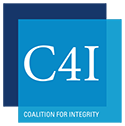Undisclosed Self-Dealing by Public Officials

We believe that our public officials work for us. As such, their primary duty is to the citizens they serve and not to themselves. Unfortunately, in Skilling v. United States, a Supreme Court decision arising out of the Enron fraud prosecution, the Court held that current federal law criminalizes undisclosed self-dealing or the “deprivation of honest services” only when the self-dealing acts involved bribery or kickbacks. As a result of this decision, many forms of undisclosed self-dealing by public officials can no longer be prosecuted under federal law. For example, a federal, state, or local official who votes to approve a consulting contract without disclosing that she would benefit financially from the transaction because she has an ownership interest in the consulting company chosen for the contract can no longer be federally prosecuted. In such cases, the harm is not necessarily economic, but lies in the deception itself.
The deception that results from undisclosed self-dealing by public servants has serious consequences for our democracy. Public officials who use their official positions for private benefit violate the public trust and erode fundamental principles of representative government. Transparency is undermined, and the public is deprived of its right to impartial decision-making by its officials.
The Coalition for Integrity believes that Congress should pass a law making undisclosed self-dealing by public officials illegal. In our white paper on this subject, we propose language for a new statute that would criminalize forms of undisclosed self-dealing where there is no direct exchange of money but where public servants nonetheless obtain a financial benefit such as in the consulting contract example above. We have urged Congress to pass such a law and close the loophole that was created by the Skilling decision.

